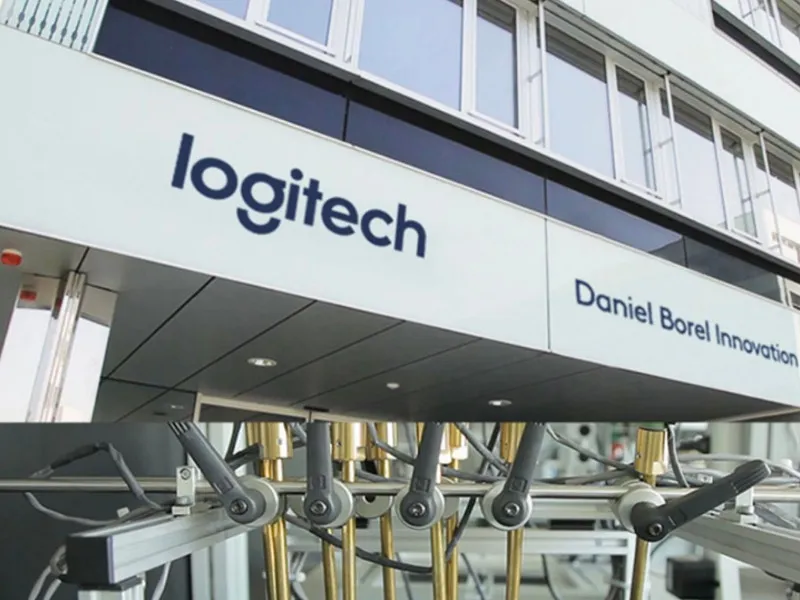- Logitech, a global leader in computer peripherals, is embarking on a new era under the leadership of its recently appointed CEO, Hanneke Faber.
- This initiative has the potential to set new industry standards for sustainable product design and electronic waste reduction.
OUR TAKE
Speaking of Logitech’s newly appointed CEO Hanneke Faber, she comes with a wealth of experience from her tenure at consumer goods giants Unilever and P&G, truly a refreshing sight. In particular, her concept of the “forever mouse” echoes Tesla’s vision for sustainable transportation. Imagine a mouse that not only stays up-to-date with software upgrades but also significantly reduces electronic waste – it’s like a small green revolution in the tech world. During the pandemic, Logitech saw a surge in demand, but the challenge was maintaining that momentum as the world transitioned back to normalcy. Faber has clearly got it figured out, stabilising the situation and reigniting Logitech’s growth through innovation and strategic focus on new market opportunities. The integration of AI across Logitech’s product lines is particularly noteworthy, enhancing functionalities in areas like video conferencing and gaming. Features like automatic speaker tracking in video conferencing equipment significantly improve the user experience. Moreover, I’m excited to see Logitech explore AI integrations in its traditional products, pushing the boundaries of what’s possible. Faber’s approach is both bold and pragmatic, leaving me eagerly anticipating Logitech’s future endeavors.
–Miurio huang, BTW reporter
What happened
Logitech, a global leader in computer peripherals, is embarking on a new era under the leadership of its recently appointed CEO, Hanneke Faber. Faber, who took the helm last December, brings a wealth of experience from her tenure at consumer goods giants Unilever and Procter & Gamble. As the first woman to lead Logitech, she is steering the company towards an ambitious goal of halving its carbon footprint by the end of the decade, while driving innovation in its core products.
One of Faber’s most notable initiatives is the concept of the “forever mouse.” This vision entails creating a mouse that is durable and upgradeable, allowing users to enhance its features over time through software updates, potentially linked to a subscription model. This approach not only promises a longer lifespan for the product but also aligns with Logitech’s broader sustainability objectives. Faber’s plan aims to significantly reduce electronic waste and promote more sustainable consumption patterns.
Logitech experienced a surge in demand during the COVID-19 pandemic, with home office products like mice, keyboards, and webcams flying off the shelves. However, as the world transitions back to a semblance of normalcy, the company faced the challenge of maintaining this growth momentum. Under Faber’s leadership, Logitech has seen a stabilisation and a return to growth, marked by innovative products and a strategic focus on new market opportunities.
Faber is also keenly aware of the transformative potential of artificial intelligence (AI). Logitech is integrating AI across its product lines, enhancing functionalities in areas such as video conferencing and gaming. For instance, AI-driven features in video conferencing equipment can now automatically adjust to focus on the speaker, improving the user experience. Additionally, the company is exploring AI integrations in its traditional products to keep them relevant and cutting-edge.
To support these ambitious goals, Faber is implementing structural changes within the organisation. This includes simplifying the organisational complexity that had arisen from the company’s rapid expansion during the pandemic. By streamlining operations and focusing investments in strategic areas, Logitech aims to enhance its market position and operational efficiency.
Also read: AI innovations set to revolutionise Paris Olympic Games
Also read: South Korea aids small businesses amid e-commerce crisis
Why it’s important
Logitech’s new strategic direction under CEO Hanneke Faber is significant for several reasons. Firstly, the ambitious sustainability goals, particularly the development of the “forever mouse,” underscore Logitech’s commitment to environmental responsibility. This initiative has the potential to set new industry standards for sustainable product design and electronic waste reduction.
Faber’s focus on innovation, especially through AI integration, positions Logitech at the forefront of technological advancements. By enhancing product functionalities and user experiences, Logitech can maintain its competitive edge in a rapidly evolving market.
The organisational restructuring aimed at simplifying operations and focusing on strategic investments reflects a proactive approach to managing post-pandemic challenges. This will likely improve operational efficiency and drive long-term growth, ensuring Logitech remains a key player in the tech industry.
With Faber’s leadership, Logitech is poised to navigate the post-pandemic landscape effectively, continuing its legacy of innovation while embracing future challenges and opportunities.

